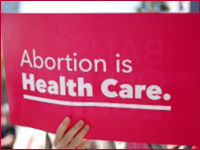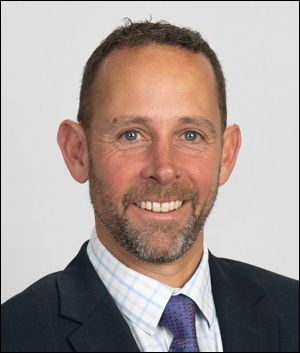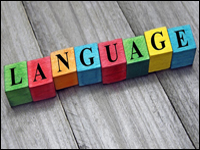 They say to be a successful traveller, you need a good sense of humour – and no sense of smell!
They say to be a successful traveller, you need a good sense of humour – and no sense of smell!
And for those who know anything about travelling around Europe – and know anything about Europeans in particular – they would understand the observation that heaven is not ‘up there’ and hell not ‘down there’, but rather that these places can be found in Europe.
‘Heaven’, they say, is where the Swiss are the administrators, the French are the cooks, the Germans are the mechanics, the Italians are the lovers, and the English are the policemen.
‘Hell’, on the other hand, is where the Italians are the administrators, the French are the mechanics, the Swiss are the lovers, the English are the cooks, and the Germans are the policemen!
Vive la différence!
Speaking of Europe, it was Oxford professor John Littlewood, who first published his theory on why he believed road accidents in Europe were substantially higher than those in Britain.
Littlewood suggested that it was all connected to the observation that a significant majority of people – seventy per cent in fact – have what he calls a ‘master right eye’.
In countries such as Britain that drive on the left, that first split-second view of approaching, overtaking or sudden change in traffic will be seen by the majority of drivers with their master right eye.
In countries that drive on the right, however, that split-second picture of traffic conditions is first seen by the left eye, which is the master eye in only thirty per cent of people.
Littlewood says that the same comparisons can be made with other countries which drive on the left – Japan, Australia, New Zealand – and comparable countries which drive on the right – the United States and Canada.
Littlewood says that the ancient Romans intuitively understood this and as a result drove on the left.
Driving on the right, he says, is Napoleonic – the result of the French Revolution – and like so many other things that derived from that great convulsion, they can be fatal.
On that score, much has been written about why England did not suffer the same catastrophic consequences that befell France in the late 1700s, when social conditions – Charles Dickens and all that – were very similar.
Why was there no English version of the French Revolution?
London and Paris – A Tale of Two Cities?
Many contend that it was the influence of the evangelist John Wesley (1703 – 1791), who was the principal leader of the revival movement known as Methodism.
For more than 50 years, Wesley travelled the length and breadth of England preaching the gospel and exhorting people to ‘… love the Lord your God with all your heart and with all your soul and with all your mind, and love your neighbour as yourself’.
John Wesley did the preaching, and his brother Charles Wesley wrote the hymns:
‘O For A Thousand Tongues To Sing’ … ‘And Can It Be That I Should Gain’ …. and hundreds more beside.
Others, however, put the difference between the two countries down to that other great English religion – cricket!
Cricket?
Yes, cricket.
It’s been said that ‘If you understand cricket, you understand life’.
By the late 1700s cricket had become a well-established sport throughout England with villagers – rich and poor alike – playing on the many village greens across the land.
The rich and the poor knew each other!
In France, the rich lived in Versailles, the poor lived in Paris.
They didn’t know each other.
It’s a lot harder to execute someone you go to church with, sing hymns with, and play cricket with!
In France, there were no such inhibitions. The banality of evil ….
We don’t know whether John Wesley played cricket during his travels, but it would be a fair bet that he did.
In the English-style village in which I live in the Adelaide Hills – Houghton – this year marks the 150-year anniversary of the laying of the village church’s foundation stone. Throughout that time – including through two World Wars, the Great Depression, devastating bush fires and other cataclysmic events – Houghton Church and its members have been a source of comfort and care to the local residents. It has also been an important connection point for community events including its annual Christmas Carols on the Green and Pancake Tuesday, as well as being an active participant in Anzac Day and Remembrance Day services. And of course, weddings, Christenings and funerals held at the church provide a service to the community during life’s ever-present milestones.
Houghton Village once had a hotel called the Travellers Rest. It is no longer there, but the ground on which it once stood now forms part of the Village Green where community events take place and many a traveller stops and rests.
In the words of another great hymn:
‘His eye is on the sparrow,
And I know He watches me …’
The eyes have it.
Thank you for your support.
 It’s been said, ‘Our lives are not examined for medals, diplomas or degrees, but for battle scars’.
It’s been said, ‘Our lives are not examined for medals, diplomas or degrees, but for battle scars’. Heinrich Heine’s ominous line, “Those who burn books will in the end burn people,” is one of the most quoted in modern history. It appears in his 1821 play, Almansor.
Heinrich Heine’s ominous line, “Those who burn books will in the end burn people,” is one of the most quoted in modern history. It appears in his 1821 play, Almansor. Over 40,000 Australian children are currently in government-sponsored care. Approximately 30,000 have been there for more than two years. Fewer than 200 were adopted.
Over 40,000 Australian children are currently in government-sponsored care. Approximately 30,000 have been there for more than two years. Fewer than 200 were adopted. It’s been said that there are only two industries in the world – farming and mining. The rest are jobs.
It’s been said that there are only two industries in the world – farming and mining. The rest are jobs. The Australian Family Party’s candidate in Black is Jonathan Parkin (pictured). A former commercial airline pilot, Jonathan has lived in the electorate for most of his life. Married with two children, he has been involved in a number of community activities, including the Nipper program at the local Seacliff Surf Life Saving Club. More about Jonathan in coming weeks.
The Australian Family Party’s candidate in Black is Jonathan Parkin (pictured). A former commercial airline pilot, Jonathan has lived in the electorate for most of his life. Married with two children, he has been involved in a number of community activities, including the Nipper program at the local Seacliff Surf Life Saving Club. More about Jonathan in coming weeks. In the book of Revelation, the last book of the Bible, there is a vivid description of The New Jerusalem – The Holy City – referred to in John Bunyan’s Pilgrim’s Progress as ‘The Celestial City’, the ultimate heavenly home of believers.
In the book of Revelation, the last book of the Bible, there is a vivid description of The New Jerusalem – The Holy City – referred to in John Bunyan’s Pilgrim’s Progress as ‘The Celestial City’, the ultimate heavenly home of believers. In William Jacob’s 1902 short story, The Monkey’s Paw, former Army officer Sgt Major Morris gives a mummified monkey’s paw he had brought back from India to his old friend Mr White.
In William Jacob’s 1902 short story, The Monkey’s Paw, former Army officer Sgt Major Morris gives a mummified monkey’s paw he had brought back from India to his old friend Mr White. Former Greens Senator Lidia Thorpe, for example, was first out of the blocks wearing her green Hamas headband in solidarity. Likewise, Greens Senator Sarah Hanson-Young is happy to show her support for the Palestinian cause.
Former Greens Senator Lidia Thorpe, for example, was first out of the blocks wearing her green Hamas headband in solidarity. Likewise, Greens Senator Sarah Hanson-Young is happy to show her support for the Palestinian cause. It is exactly 50 years since Western Mining first discovered the massive gold, silver, copper and uranium ore body at the aptly-named Olympic Dam in South Australia. A golden anniversary indeed!
It is exactly 50 years since Western Mining first discovered the massive gold, silver, copper and uranium ore body at the aptly-named Olympic Dam in South Australia. A golden anniversary indeed! What you call something is very important.
What you call something is very important. So said former New Zealand Prime Minister, Jacinda Ardern.
So said former New Zealand Prime Minister, Jacinda Ardern.